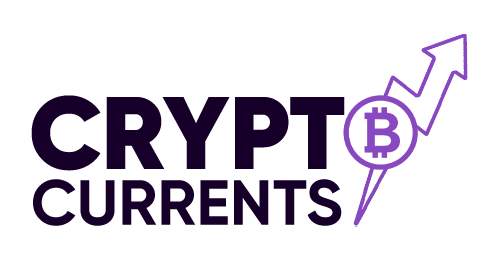
I have always been fascinated by the world of Islamic coins and their significance in the realm of cryptocurrency. Today, I am excited to address the 10 biggest concerns that many individuals have regarding Islamic coins. By exploring these concerns and providing answers, I aim to shed light on the legitimacy and potential of Islamic coins in the crypto industry. Join me on this journey as we delve into the world of Islamic coins and uncover the truth behind these pressing concerns.
Islamic Coin: 10 BIG CONCERNS (Finally ANSWERED)! #Crypto
Introduction
In the ever-evolving world of cryptocurrencies, Islamic Coin has emerged as a native coin on the Haw Network blockchain, aiming to combine the principles of transparency, community governance, and ethical values. With more than 1.8 billion Muslims and non-Muslims benefiting from the Islamic Financial School, the potential for Islamic Coin to bridge the gap between blockchain technology and Islamic finance is immense. In this article, I will address 10 big concerns surrounding Islamic Coin, providing clear answers and insights into this exciting project.
Concern 1: What is the significance of Islamic Coin in the Islamic Financial School?
Islamic Coin holds great significance within the Islamic Financial School, which serves a vast community of over 1.8 billion Muslims and non-Muslims worldwide. The Islamic Finance market boasts a staggering market cap of over $3 trillion, with a further $4 trillion market cap in Halal products. Being a native coin on the Haw Network blockchain, Islamic Coin aligns with the principles of transparency and community governance that the Islamic Financial School cherishes.
Concern 2: How does Islamic Coin utilize blockchain and crypto technology?
Blockchain and cryptocurrency technology offer unique benefits to the Islamic Financial School by creating a decentralized and transparent platform. Islamic Coin leverages these tools to ensure the principles of Islamic finance are upheld while providing a trustless environment for users and promoting community participation. The integration of blockchain and crypto technology enables efficient and secure transactions, enhancing the overall experience within the Islamic Coin ecosystem.
Concern 3: Who are the founders of Islamic Coin?
Islamic Coin was brought to life by a team of visionary individuals, including Mohammed AlKaff AlHashmi, Alex, and Andre. Their collective expertise spans across various fields, ranging from blockchain technology to finance, ensuring a diverse perspective in building and maintaining the Islamic Coin project.
Concern 4: Has Islamic Coin undergone a compliance check with Sharia law?
Ensuring compliance with Sharia law is of utmost importance for Islamic Coin. The project has been rigorously reviewed by legal scholars with expertise in Islamic finance and Sharia-compliance. Islamic Coin wants to emphasize that it is a Halal project, designed to align with the principles of Islamic finance, making it an attractive choice for both Muslim and non-Muslim communities.
Concern 5: Is Islamic Coin centralized? How does it prioritize the community?
Islamic Coin is proud to be a decentralized project that places the community first. Decision-making within the Islamic Coin ecosystem is done through a consensus mechanism that involves community voting, ensuring that important decisions regarding the future of the project are made collectively. This commitment to community governance sets Islamic Coin apart from traditional centralized financial systems and reinforces the project’s dedication to its users.
Frequently Asked Questions (FAQs):
-
Is Islamic Coin only for Muslims?
- No, Islamic Coin is for both Muslim and non-Muslim communities, providing a platform that aligns with the principles of Islamic finance while welcoming users from diverse backgrounds.
-
What is the utility of Islamic Coin?
- Islamic Coin serves as a means of exchange within the Islamic Financial School ecosystem, facilitating efficient and secure transactions. Additionally, Islamic Coin upholds the values of ethics and transparency, making it an attractive choice for users interested in aligning their investments with Islamic finance principles.
-
How can I acquire Islamic Coin?
- Islamic Coin can be acquired through various exchanges and platforms that support the coin. Additionally, participating in the Islamic Coin community and ecosystem can provide opportunities for users to earn or receive Islamic Coins as rewards.
-
Is Islamic Coin an ethical investment?
- Yes, Islamic Coin is designed to be an ethical investment that adheres to the principles of Islamic finance. By focusing on transparency, community governance, and aligning with Sharia law, Islamic Coin offers users an ethical and Halal investment option.
-
Can I use Islamic Coin for everyday transactions?
- Yes, Islamic Coin can be used for everyday transactions within the Islamic Financial School ecosystem. As the platform grows and more merchants and service providers integrate Islamic Coin, its usability for daily transactions will increase.
Conclusion
Islamic Coin represents a pioneering step in bridging the gap between blockchain technology and Islamic finance. With strong ties to the principles and values of the Islamic Financial School, Islamic Coin offers a decentralized and transparent platform that serves both Muslim and non-Muslim communities. By prioritizing community governance and ensuring compliance with Sharia law, Islamic Coin presents an attractive investment opportunity for those seeking ethical and Halal investment options within the cryptocurrency space.
Disclaimer: Sponsored content. Payment made in USDT. Please seek professional advice before investing in cryptocurrencies.
